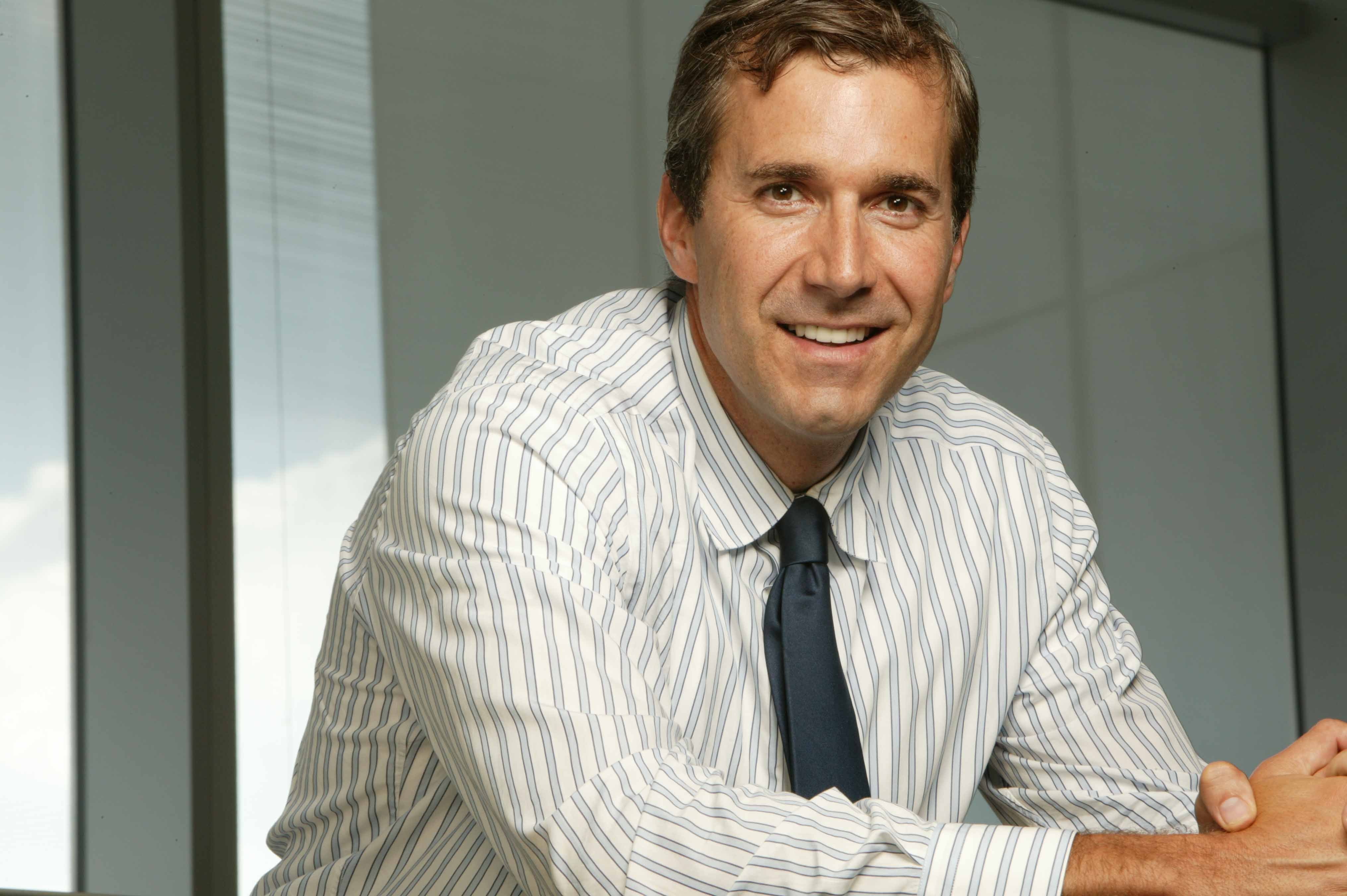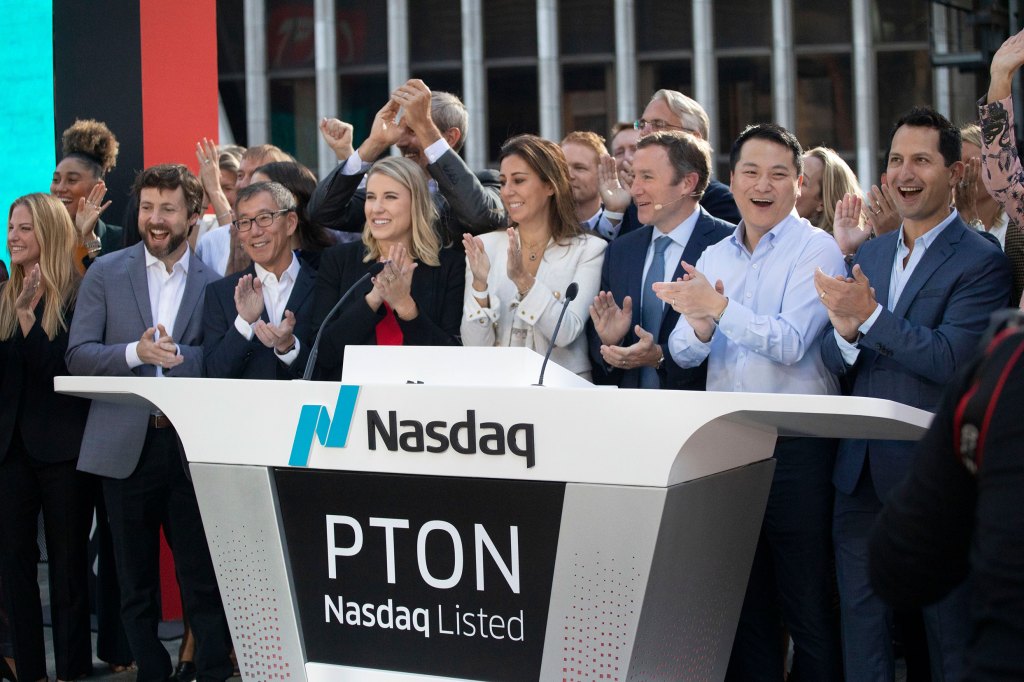This morning, Peloton (NASDAQ: PTON), the tech-enabled stationary bicycle and fitness content streaming company, raised $1.2 billion in its NASDAQ initial public offering. Despite dropping more than 10% in its first day of trading — ultimately closing down 11% at $25.84 per share — the IPO was a bona fide success. Peloton, once denied (over and over again) by VC skeptics, now has hundreds of millions of dollars to take its business into a new era. One in which, the media, hardware, software, logistics and social company attempts to become a generation-defining company akin to Apple.
Founded in 2012 — six years after Soul Cycle opened its first cycling studio in New York’s Upper East Side and two years before a Soul Cycle founder, Ruth Zukerman, jumped ship to launch her own indoor cycling business, Flywheel Sports — a man by the name of John Foley made the ambitious, some might say foolish, decision to start a company that would sell these exercise bikes direct-to-consumer. That way, you could take a Soul Cycle class, in essence, in the comfort of your own home. Even better, technology would improve the experience.
As my colleague Josh Constine recently described it, these bikes come outfitted with a 22-inch Android screen, transforming an outdated exercising experience and bringing it into 2019: “It makes lazy people like me work out. That’s the genius of the Peloton bicycle. All you have to do is Velcro on the shoes and you’re trapped. You’ve eliminated choice and you will exercise,” Constine writes.
Peloton’s ability to get people exercise — a feature driven by its talented instructors (some of whom were poached from competitor Flywheel Sports) — ultimately had venture capital investors funneling $1 billion, roughly, into the business. Today, Peloton operates dozens of showrooms across the U.S., counts 1.4 million total community members — defined as any individual who has a Peloton account — and over 500,000 paying subscribers. Why? Because the company, as stated in its IPO prospectus, “sells happiness.”
“Peloton is so much more than a Bike — we believe we have the opportunity to create one of the most innovative global technology platforms of our time,” writes Foley. “It is an opportunity to create one of the most important and influential interactive media companies in the world; a media company that changes lives, inspires greatness, and unites people.”

Peloton’s community coupled with the high margins on sales of its $2,245 bikes had the company reporting $915 million in total revenue for the year ending June 30, 2019, an increase of 110% from $435 million in fiscal 2018 and $218.6 million in 2017. Its losses, meanwhile, hit $245.7 million in 2019, up significantly from a reported net loss of $47.9 million last year.
What’s next for Peloton? The opportunities are endless, given the company’s firm seat at the intersection of hardware, software, media content and more. A third product may be in the works, expansion to international markets or new instructors. Peloton is going after a massive market ripe for disruption. What’s certain is that we’ll see a whole lot of cash flowing into fitness tech copycats in the next couple of years.
Peloton, following a number of lukewarm consumer IPOs (Uber), nearly doubled its valuation to $8.1 billion this morning after pricing its IPO at the top of its range, $29 per share. To answer some of our most burning questions, we chatted with Peloton’s president William Lynch, the former CEO of Barnes & Noble, about the float.
The following conversation has been edited for length and clarity.

Kate Clark: What’s next for Peloton?
William Lynch: We now have over a billion in capital to fuel more growth, especially in the area of product innovation.
We’ve increased R&D because we see a ton of opportunities in new features and new platforms and new content. We are opening two new super studios next year in New York City and London. New York City’s will be the largest live streaming fitness facility in the world with over four studios. We are putting $50 million into each of those to produce over 1,500 classes per month across running, yoga, tread, floor exercises, stretching and more. That’s got us really excited.
Kate: Is geographic expansion on the to-do list?
William: We’ve launched in U.K. and Canada. We are going to continue to expand in continental Europe with Germany in the next 60 days. In the U.S., we will continue to invest and not only in our retail showrooms — we have over 70 now. We’ve launched in Des Moines, Pittsburgh and Tampa, because we are seeing volume and interest in Peloton explode. We want to grow our foothold in the states.
Kate: Any details you can tell me about new products in the pipeline?
William: We are definitely interested in launching new hardware. We aren’t going to announce anything today but you can be sure we are working on other products. We just launched the tread late last year … We think the tread is just getting started.
William Lynch: “We are seeing volume and interest in Peloton explode.”
Kate: Like many unicorns to enter the public market, Peloton isn’t profitable. When will it be?
William: In the model we put out, we have it and from what John has said [we will be profitable] in 2023. We could pull profitability earlier if we wanted to slow down growth because this business model is very very good. In fact, it’s one of the best I’ve seen in running consumer businesses. We are so ambitious and we see so much upside that we are making what we think are smart investments. In terms of profitability, we think we are unique from the companies going out recently.
Kate: How are you unique from other subscription businesses, specifically?
William: Our business model in the consumer space, it’s one of the strongest I’ve seen between the recurring revenue on subscription — most of the costs on the subscription side are fixed — when you are growing as fast as we are that really scales. I don’t know any subscription business that can yield $39 per month from our membership with churn super low that’s scaling at our rate. Most of what you are seeing today are consumers moving to lower cost subscription models; it’s a testament to the quality of our service. In fact engagement is growing as we launch all this new content.

Kate: Between Peloton, Uber, Lyft, Pinterest (need I go on), it seems none of the companies behind the most highly-anticipated IPOs are profitable. Why should Wall Street invest in these unproven models?
William: I think the whole point of an IPO is to raise money. It’s a fundraising event. Thats what it’s for. And so we are using then funds to continue to innovate and grow the business and add more value to the Peloton membership. I can’t speak to the other companies, but for us it was to fuel the incredible growth. We’ve doubled the company every year since inception.
Kate: Peloton opened about 5% down this morning. Was the IPO mispriced?
William: We let the bankers sort all that out. We feel great about the bankers and this was a big day for Peloton and the team. It was primarily to raise capital, Kate. We are incredibly excited about today. The investors that have been along the ride with us, many of them were the biggest investors in the IPO. Seven of the 15 biggest buyers in this IPO have been in at least one to two rounds with us. We couldn’t be more excited about today. This is as confident as we’ve ever been.
Kate: Like WeWork and a number of other Silicon Valley-esque tech companies have opted for dual-class stock, which allows founders and existing shareholders more voting control. Why did Peloton opt to go this route?
William: Our dual class applies to all the existing shareholders of Peloton. We have a great board, some of the brightest minds and we feel great about the governance of the company and we were very focused on building the company mid to long term. We wanted to create a structure that incentives long term thinking. I have been part of companies, in fact public companies in which you’ve had activist investors agitate for short term moves. It’s fascinating. If you look at some of these what are now FAANG stocks, they had difficulty in their first six months of existence. We plan on focusing on mid to long term.
Kate: Since Peloton was founded in 2012, there’s been a number of new fitness tech companies that have secured backing from venture capitalists. Do you pay attention to new entrants to the fitness tech ecosystem and are they threatening to Peloton?
William: We obviously pay attention to what is going on. Ff there’s innovation in fitness and more people are getting fit, that’s a good thing. We think the world needs to get more fit. We pioneered the category in many ways; we’ve been the leader. As awareness grows, we see there’s a more convenient way to work out at home with more choice and variety on how long you can work out, what music you can listen to and what types of workouts you can do — that’s only going to be good for Peloton as a leader in the category. We believe new entrants are going to come and we are just focused on adding and innovation for our members.
Kate: Finally, in Peloton’s IPO prospectus, you guys claimed to “sell happiness.” What does this mean?
William: We see it in our community. We, increasingly, are uniting people through fitness, endorphins and music. Our core belief of the company is that a healthy fit lifestyle is a better lifestyle. The community that grew up around Peloton wasn’t intentional, it grew out of people supporting each other and there are stories on our Facebook board of people recovering from injury and depression, getting over diabetes challenges, coming back from cancer, it’s everywhere. We think there is absolutely a connection between a healthy body and a healthy, happier mind and we see it everyday through our beautiful community and our members.
https://techcrunch.com/2019/08/30/equity-peloton/































Comment